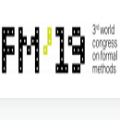The loss function for bounding box regression (BBR) is essential to object detection. Its good definition will bring significant performance improvement to the model. Most existing works assume that the examples in the training data are high-quality and focus on strengthening the fitting ability of BBR loss. If we blindly strengthen BBR on low-quality examples, it will jeopardize localization performance. Focal-EIoU v1 was proposed to solve this problem, but due to its static focusing mechanism (FM), the potential of non-monotonic FM was not fully exploited. Based on this idea, we propose an IoU-based loss with a dynamic non-monotonic FM named Wise-IoU (WIoU). The dynamic non-monotonic FM uses the outlier degree instead of IoU to evaluate the quality of anchor boxes and provides a wise gradient gain allocation strategy. This strategy reduces the competitiveness of high-quality anchor boxes while also reducing the harmful gradient generated by low-quality examples. This allows WIoU to focus on ordinary-quality anchor boxes and improve the detector's overall performance. When WIoU is applied to the state-of-the-art real-time detector YOLOv7, the AP-75 on the MS-COCO dataset is improved from 53.03% to 54.50%. Code is available at https://github.com/Instinct323/wiou.
翻译:捆绑框回归( BBR) 损失功能对于检测目标至关重要 。 它的良好定义将给模型带来显著的绩效改进。 多数现有工作假设培训数据中的例子质量高, 侧重于加强BBR损失的适当能力。 如果我们盲目地加强BBR低质量实例, 将危及本地化绩效。 提出Coil- EIoU v1 来解决这一问题, 但由于它的静态聚焦机制( FM), 非调频的潜力没有被充分利用。 基于这个想法, 我们提议基于IOU的损失, 以动态的非移动调频为Wise- IoU(WIOU) 。 动态的非移动调频将使用超出IOU的水平, 而不是IOU, 来评估锚定箱的质量, 并提供明智的梯度收益分配战略。 这个策略降低了高质量锚箱的竞争力, 同时降低了低质量实例产生的有害梯度。 这让WIOU关注普通质量的锚箱, 并改进了探测器的总体性能。 当WIOU 正在州- MS- MO- OS- COM- real- real 7, MS- AS-% AS- MS- ASet- MS- MS- MS- MS- MS- MS- MS- OS- MS- MS- MS- MS- MS- MS- MS- MS- MS- MS- MS- MS- MS- MS- MS- MS- MS- MS- MS- MS- MS- 05- MS- MS- MS- MS- MS- MS- MS- MS- MS- MS- MS- MS- MS- MS- MS- MS- MS- MS- MS-%



